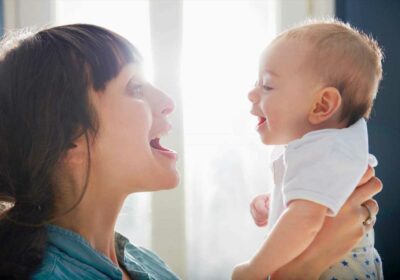Child tax credit payments 2021: How do I claim and how much will I get?

PARENTS and guardians on a low income can get cash from the Government to help with the costs of bringing up children.
Families can access the support through child tax credits but how much you get depends on your circumstances.
For example, when your child was born and how many other children you have can affect the amount of cash you're entitled to.
We explain everything you need to know about child tax credits, from how much they're worth to how to claim them.
What are child tax credits?
Child tax credits is a form of Government support to help low income parents with the cost of bringing up children.
It's different to child benefit, which is available to all parents regardless of income.
Parents, adoptive parents and guardians are eligible for the payments too.
You don't need to be working to make a claim but you do need to already be claiming working tax credit.
How much will I get?
How much child tax credits you're entitled to depends on how many children you have and when they were born.
Adults responsible for children or young people born before April 6 2017 can get up to £3,900 a year for your first child up until they turn 16.
For any further children, parents can claim up to £2,845 a year up until they turn 16.
What to do if you have problems claiming Universal Credit
IF you’re experiencing trouble applying for your Universal Credit, or the payments just don’t cover costs, here are your options:
- Apply for an advance – Claimants are able to get some cash within five days rather than waiting weeks for their first payment. But it's a loan which means the repayments will be automatically deducted from your future Universal Credit payout.
- Alternative Payment Arrangements – If you're falling behind on rent, you or your landlord may be able to apply for an APA which will get your payment sent directly to your landlord. You might also be able to change your payments to get them more frequently, or you can split the payments if you're part of a couple.
- Budgeting Advance – You may be able to get help from the Government for emergency household costs of up to £348 if you're single, £464 if you're part of a couple or £812 if you have children. These are only in cases like your cooker breaking down or for help getting a job. You'll have to repay the advance through your regular Universal Credit payments. You'll still have to repay the loan, even if you stop claiming for Universal Credit.
- Cut your Council Tax – You might be able to get a discount on your Council Tax by applying for a Council Tax Reduction. Alternatively, you might be entitled to Discretionary Housing Payments to help cover your rent.
- Foodbanks – If you're really hard up and struggling to buy food and toiletries, you can find your local foodbank who will provide you with help for free. You can find your nearest one on the Trussell Trust website.
You can keep claiming until they turn 20 if they stay in approved education or training, such as college.
For children who were born after April 6 2017, you can only get child tax credits for your first or second child, worth up to £2,845 for each.
Parents won't be entitled to any cash for further children unless they fall into the exceptions to the rules, such as twins, triplets or non-consensual conception.
You can read the full list of exceptions on Gov.uk.
HMRC takes into account other factors too when calculating your payments. These include:
- Your income from the previous tax year
- How many children or young people in approved education or training live with you
- When your children were born
- Ifany of the children or young people are disabled
You won't know exactly how much you'll get in tax credits until your claim is processed, which can take up to five weeks.
You can get an estimate of what to expect by using the free Turn2Us benefits calculator.
If your child is disabled, you may be entitled to extra funding worth £3,435 a year if they get Disability Living Allowance (DLA) or Personal Independence Payment (PIP), or is registered blind.
Disabled children that qualify for the highest rate DLA care component or the enhanced PIP daily living component will be eligible for extra help worth £4,825.
How to claim child tax credits
Tax credits have been replaced by Universal Credit so you won't be able to apply for child tax credits unless you already get working tax credits.
If you already receive working tax credits, you'll need to update your existing claim by reporting a change in circumstances online or by phone.
Alternatively, you can apply for Universal Credit via the gov.uk website, starting by setting up an online account, which you'll use later to manage payments.
To make an account, you'll need an email address and a phone number.
After that, you'll need to answer a set of questions about your current circumstances, known as your "to do list".
These include things like when you last received payment for a job, what your household income is and how many people depend on you financially.
In certain circumstances, you'll be able to apply over the phone, such as those who don't have regular access to the internet, are visually impaired, or have a physical condition that stops you from using a computer or smartphone.
To do this, you will need to contact the Universal Credit helpline on 0800 328 5644 to ask if you can apply by phone or arrange a home visit.
In this case, someone can call them on your behalf if you can't do it yourself.
Source: Read Full Article
